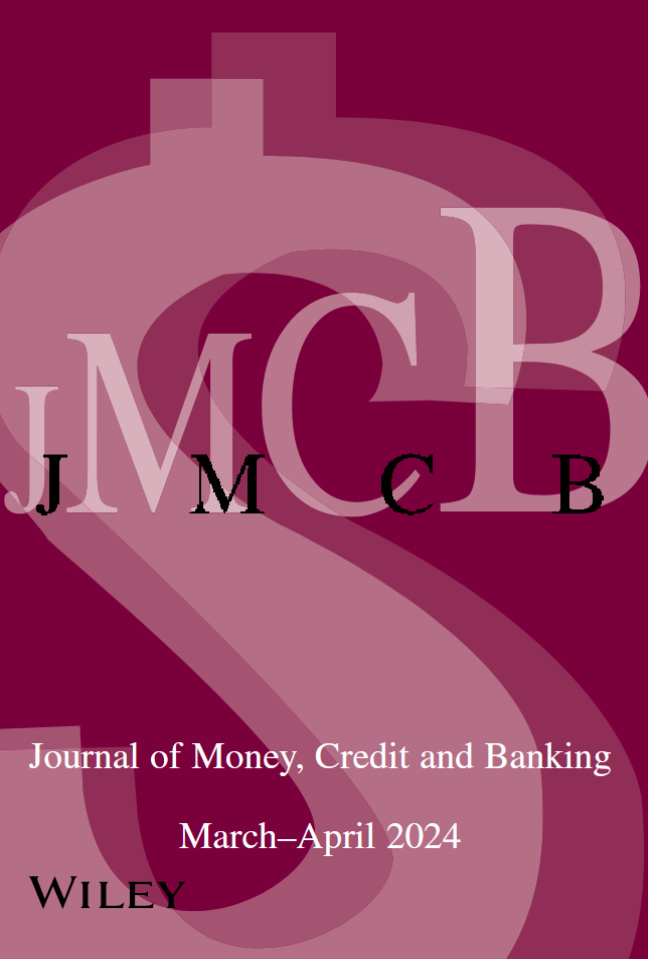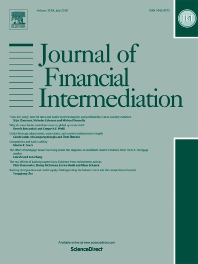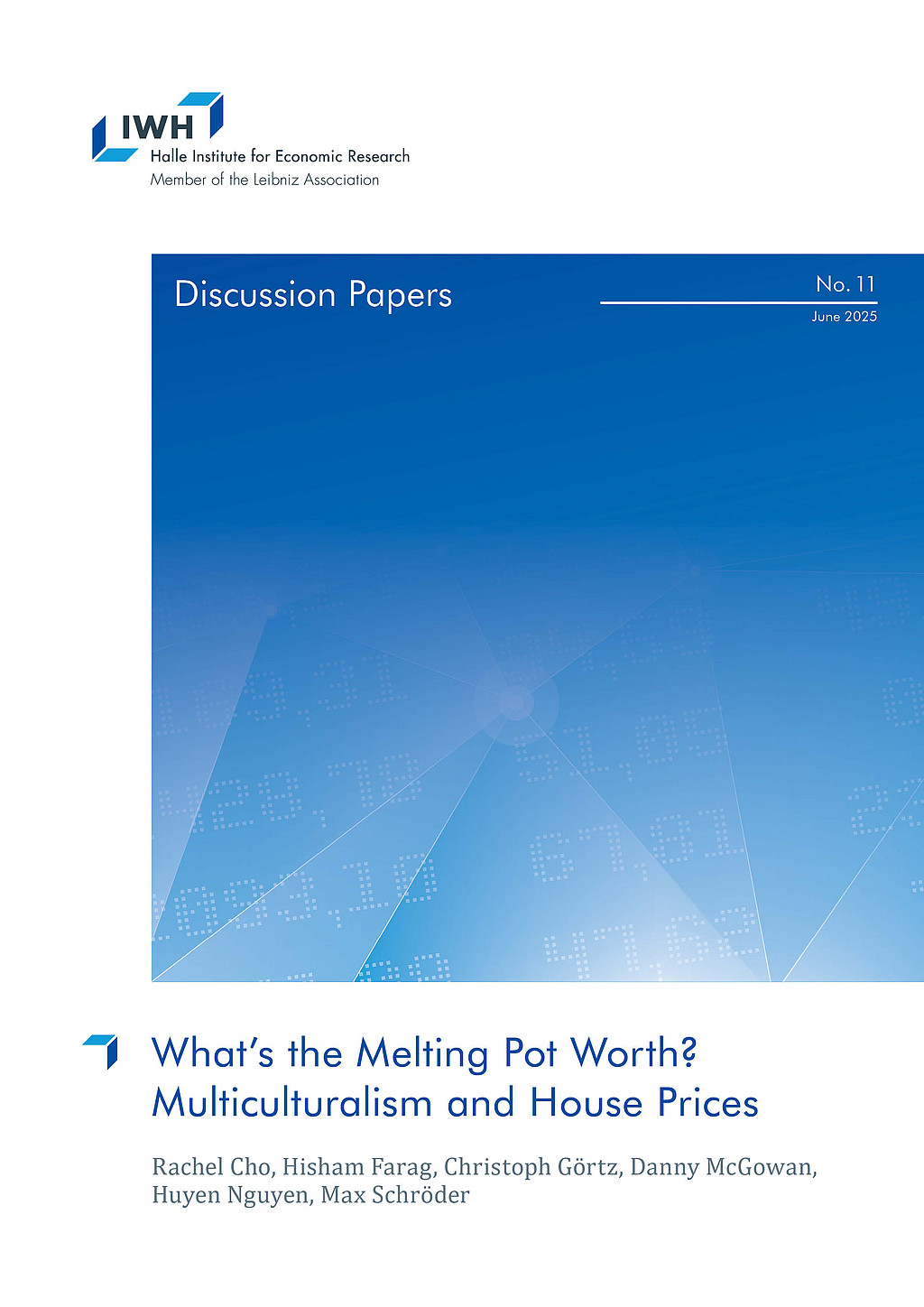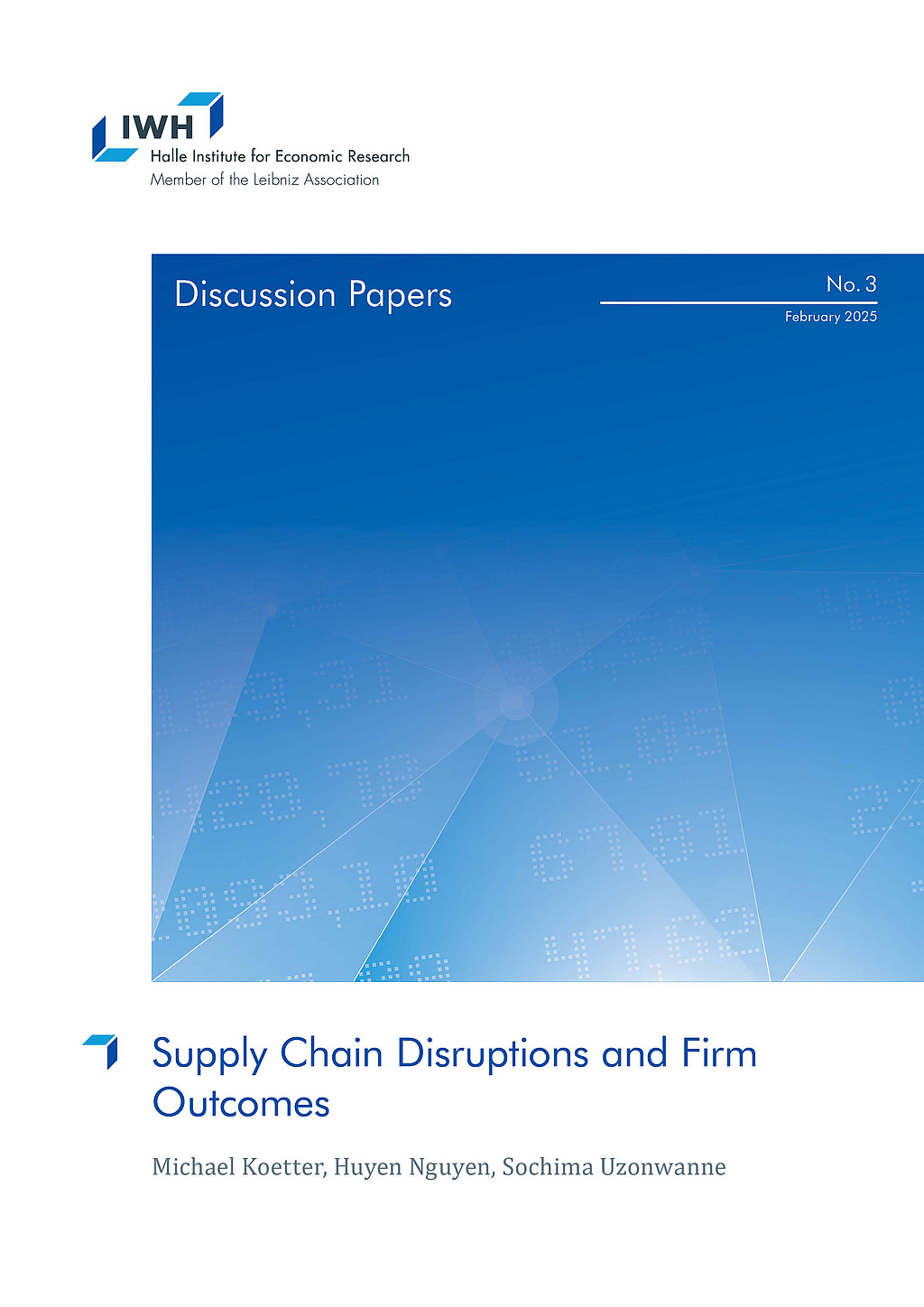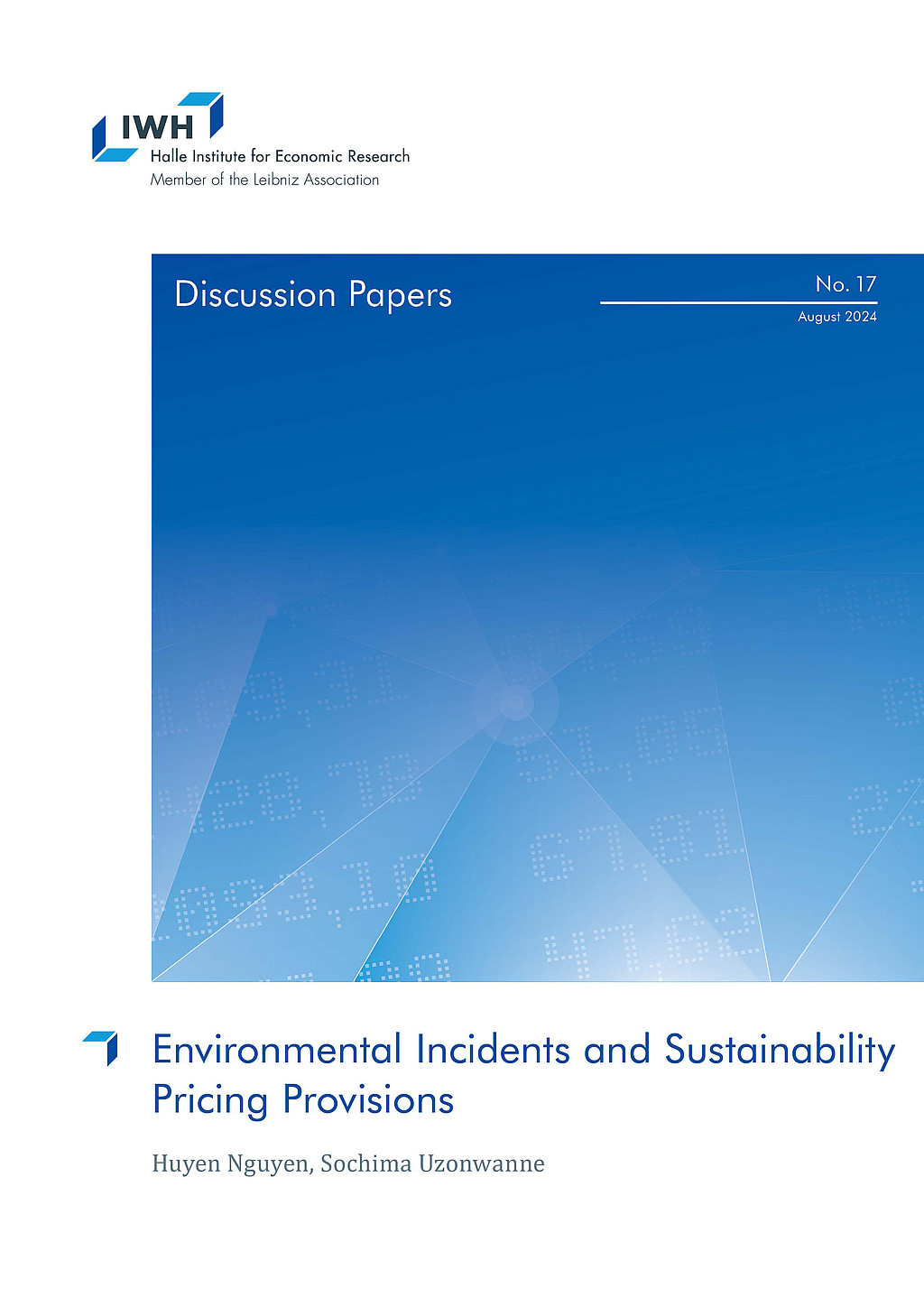Juniorprofessorin Huyen Nguyen, Ph.D.

Aktuelle Position
seit 1/20
Leiterin der Forschungsgruppe Risikoverlagerung in Finanzmärkten und nachhaltige Finanzierung
Leibniz-Institut für Wirtschaftsforschung Halle (IWH)
seit 10/19
Juniorprofessorin
Friedrich-Schiller-Universität, Jena
seit 10/19
Mitglied der Abteilung Finanzmärkte
Leibniz-Institut für Wirtschaftsforschung Halle (IWH)
Forschungsschwerpunkte
- Wohnungsmärkte
- nachhaltige Finanzierung
- empirische Bankenforschung
- Finanzökonomik
Huyen Nguyen ist seit Oktober 2019 als wissenschaftliche Mitarbeiterin in der Abteilung Finanzmärkte und als Juniorprofessorin an der Friedrich-Schiller-Universität Jena tätig. Ihre Forschungsinteressen liegen in den Bereichen Wohnungsmarkt, empirische Bankenforschung, nachhaltige Finanzierung sowie Finanzökonomik.
Huyen Nguyen studierte an der Foreign Trade University of Vietnam und der Bangor University. Sie promovierte an der University of Nottingham. Bevor Huyen Nguyen zum IWH kam, war sie unter anderem als Senior Research Associate an der University of Bristol tätig und besuchte als Gastwissenschaftlerin die Bank of England, die Deutsche Bundesbank und den Internationalen Währungsfonds.


